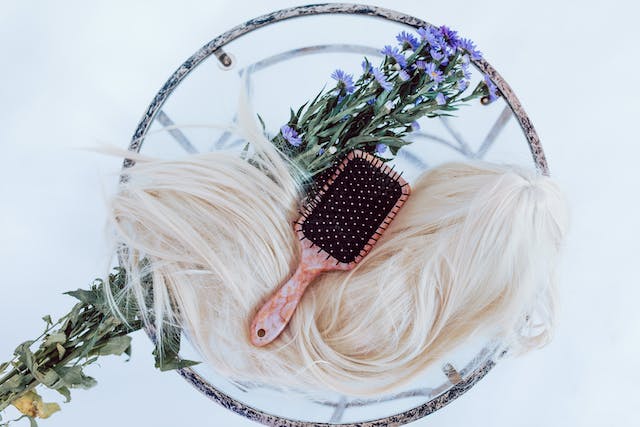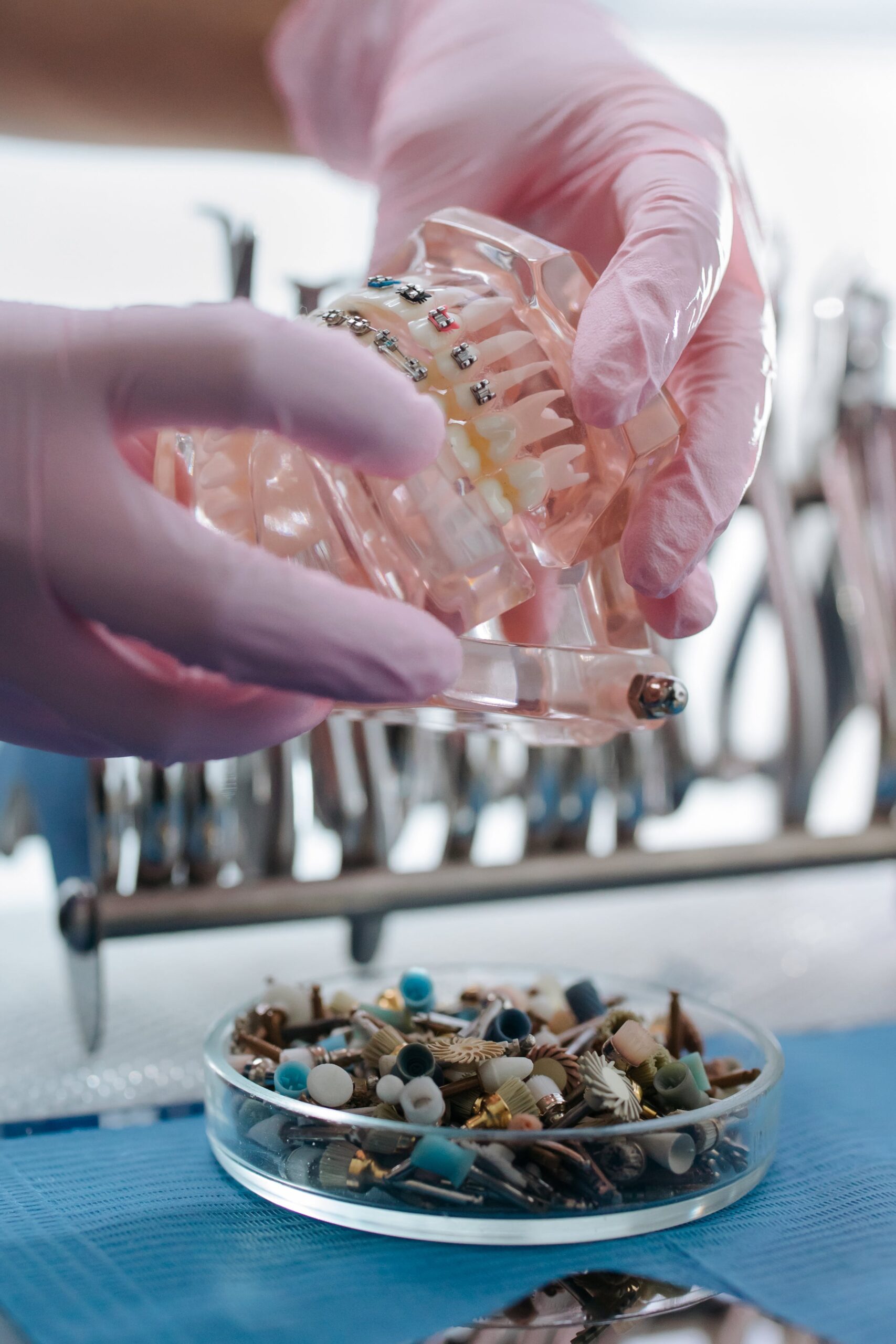Hair weight can differ dramatically based on several variables, including its length, thickness, density and other aspects. On average it\’s estimated that human strands weigh roughly 0.06 grams each.
Calculating the total weight of someone\’s hair requires taking into account both its number of strands on their head, multiplied by its average weight per strand and individual differences which could alter this estimate, such as moisture content or use of styling products that could alter its total mass. To accurately gauge this estimate of an individual\’s hairweight it would also help to take humidity content and care products into consideration as factors in this calculation process.
QA
What is the weight of one piece of hair?
Weight of an Individual Strand of HairCan vary greatly based on thickness, length, and other variables, but on average an individual strand of human hair typically weighs between 0.62 to 0.75 milligrams (mg). But these estimates should only serve as rough estimates; actual weight varies greatly between people as well as between individual strands – it depends heavily on thickness, length and other aspects! While hair itself can be lightweight; multiple individual hair strands could easily add up to significant pounds over time.
What is the total weight of body hair?
The total weight of body hair varies significantly among individuals depending on factors like genetics, age, gender and overall body size. On average, adult humans can expect their total hair weight to range between 10-20 grams for adult humans – including on scalp hairs such as eyebrows or eyelashes; armpit hair; legs/armpits/chest; other parts. Although this estimate should only be considered an approximation; individual variations could still occur substantially – it should also be kept in mind this represents only a portion of total body weight!
How much weight can your hair take?
Your hair\’s ability to support weight will depend upon several variables, including its thickness, length, strength, condition and style. In general though, human hair was never designed to support heavy loads like structural materials would.
Hair can be quite fragile and easily broken or damaged. On average, an individual strand of human hair can withstand tension forces of about 100 grams (3.5 ounces) before snapping. But this depends on many variables including hair type (straight, curly or wavy), health issues associated with your scalp as well as whether your locks are wet or dry.
Attempts at using hair to support heavy objects should be undertaken with caution as doing so could result in hair damage, discomfort to your scalp and possible injury to yourself and/or others. Testing the limits of your strand\’s strength by doing this should never be attempted! For guidance regarding hair health or loss issues it would be advisable to speak to either a dermatologist or certified hair specialist directly.
Do you weigh more with wet hair?
No, your weight does not change when your hair becomes wet. Mass is what determines weight; water does not change it. While when hair becomes wet it may feel heavier because extra water weighs down upon it – however this does not reflect a change in overall body mass or mass composition.
The Science Behind Hair Weight
Hair weight can be determined by various factors, including its length, thickness, density and the materials that compose its composition. Here is more on what exactly determines its weight:
Length: Longer locks typically weigh more, as longer hair strands consist of multiple proteins called keratin which pack tightly together over time.
Thickness (Diameter): Hair thickness or diameter plays an integral part in its weight; thicker strands have greater mass per unit length, which results in heavier locks. Although each person will vary a little bit when it comes to their diameter, genetic factors typically play a large part in determining it.
Hair Density: Density refers to the number of strands per unit area on a scalp. People with high density tend to have thicker locks due to more individual hair strands being present overall; though, density may also depend on genetics or other external influences.
Moisture Content: Moisture content can have a substantial effect on hair weight. Due to being porous and capable of absorbing and exuding moisture from its surroundings, when hair absorbs water it becomes heavier while when it loses water it lightens; hence why wet hair often feels heavier.
Hair Color: Hair colors have the power to change its weight in certain ways. Natural hues of our locks depend on the amount and types of pigments present within our shafts – darker hues tend to contain more pigment, making them weightier than lighter options.
Haircare Products and Treatments: Shampoos, conditioners and styling products such as gel can temporarily add weight to hair due to product residue build-up. Chemical straightening or coloring treatments also alter hair structure which could alter its weight by altering its structure or weight.
Environmental Factors: Exposure to pollutants, humidity and temperature can have a dramatic effect on hair health, which in turn may impact its weight over time. For instance, hair may become heavier or grottier under humid conditions.
Health and Nutrition: Your overall health and nutritional status have an immense effect on the quality and weight of your hair. A balanced diet rich in essential proteins, vitamins, and minerals is necessary for keeping hair in good condition.
Importantly, while these factors do influence hair weight, individual variations and genetics play an essential part. Some individuals simply have heavier or lighter locks naturally despite similar lengths and thickness. Furthermore, hair weight may only have superficial implications on overall health;
Factors Affecting Hair Weight
Hair weight can be affected by both genetic and environmental influences. Here are a few key variables which could have an effect on its weight or thickness:
Genetics: Your DNA plays an enormous role in determining the thickness and density of your hair. If both parents or grandparents had thick locks, chances are it\’ll pass down through you too!
Age: As people get older, their hair becomes thinner over time – a natural part of aging which often results in decreased weight of hair.
Gender: Men typically have thicker and heavier hair than women due to hormonal variations affecting growth and thickness of locks. Hormonal differences also determine growth and thickness.
Hormonal Inbalances: Hormone imbalances caused by pregnancy, menopause or certain medical conditions can also have an effect on hair thickness; some women experience thicker locks during gestation as their hormones fluctuate more intensely due to this cause.
Nutrition: Eating a well-rounded diet rich in biotin, vitamin A, vitamin C and zinc will contribute significantly to hair thickness and growth. Deficits could result in hair thinning or weight loss as a result.
Health Conditions: Thyroid disorders, Alopecia areata and Polycystic Ovary Syndrome (PCOS) can all have detrimental effects on hair thickness and lead to its eventual loss.
Medication: Some chemotherapy drugs, among others, may lead to hair thinning or loss as an unwanted side effect.
Haircare Practices: Overusing heat styling tools, harsh chemicals found in products used on your locks and tight hairstyles (such as braids or ponytails ) as well as frequent coloring can damage hair and leave it appearing thinner over time.
Stress: Chronic anxiety or stress may put strain on hair health and lead to hair loss or thinning; stress management techniques may be effective ways of mitigating this effect.
Environment Factors: Environmental factors like pollution, UV radiation and extreme weather can have a tremendously detrimental impact on both the overall health and appearance of your hair.
Hair Type: Your natural texture and curl pattern of your locks can determine whether they appear thicker or thinner, with curlier locks being thicker due to volume and texture, while straight ones could appear thinner.
Hair Growth Cycle: Your hair goes through different growth phases that include anagen (growth), catagen (transitional), and telogen (resting). Anagen duration can have an impactful influence on length and thickness of your locks; see chart for further explanation.
Haircare Routine: By regularly using products designed to nourish and strengthen your locks – such as shampoos, conditioners and masks – to aid with maintaining its health and thickness, using these can play an invaluable role.
Though you cannot change your genetics, taking steps to promote healthy hair growth and thickness through nutrition, good haircare practices, and managing any underlying medical conditions is possible. If changes to the weight or thickness of your hair arise that cause concern it\’s wise to consult a healthcare provider or dermatologist in order to get accurate diagnoses and appropriate solutions.
The Impact of Hair Density
Air density refers to the total number of hair follicles or strands present on any particular area of a scalp or body, which has multiple influences on an individual\’s appearance, self-esteem and overall well-being. Here are some factors and consequences associated with air density:
Aesthetic Appearance: Hair density can have an immense effect on one\’s overall aesthetic appearance. Denser, fuller locks often give off the impression that they have full and healthy locks while sparse or thinned-out locks may make a person appear older or less vibrant.
Self Esteem and Confidence: Similarly, having thick, full locks increases self esteem and boosts one\’s sense of identity as an individual.
Hair density has long been linked with self-esteem and confidence for most individuals, so those with thinner or sparser locks often feel self-conscious or less secure about themselves due to lack of coverage in certain areas of their head.
Age and Genetics:
Hair density can be determined by genetics; individuals whose families have experienced similar issues tend to face similar hair density issues as they get older.
Hair Loss: Conditions such as male pattern baldness and female pattern baldness (androgenetic alopecia) can have devastating consequences on hair density. Over time, they typically result in the gradual depletion of both follicles and strands within affected regions, dramatically decreasing hair density overall.
Care and Styling of Hair:
The density of one\’s locks can influence its styling capabilities; those with thick, dense locks may have more options while those with thin locks must get creative when styling their locks.
Scalp Health:
Hair density can have an impactful impact on scalp health. A congested or oily scalp could lead to hair follicle blockage that leads to hair loss or thinning; keeping a clean and healthy scalp environment essential in maintaining optimal hair density levels.
Environmental Factors:
Exposure to pollutants, UV radiation and harsh chemicals can have an adverse impact on hair density. Protecting it against such hazards will ensure its thickness and health are preserved.
As there are various products and treatments to address hair density concerns, such as shampoos, conditioners, topical medications and hair transplant surgery procedures – there may be plenty of choices available to address the matter of hair density issues. These might include shampoos, conditioners, topical medication or surgical solutions like transplant surgery.
Emotional Impact:
Changes to hair density due to age, genetics or medical conditions may have an extremely adverse emotional effect. Some may experience anxiety, depression or social isolation due to hair loss and thinning.
If you are experiencing changes to your hair density or experiencing loss, consulting with a healthcare provider or dermatologist who can advise on appropriate interventions may provide.
Hair Growth and Weight Changes
Hair growth and weight fluctuations may be affected by multiple factors; although they do not directly correspond, there may be indirect correlations due to health conditions or lifestyle choices that contribute. Here\’s a breakdown of how hair growth and weight changes may be connected:
Nutrition: Your diet can have a direct impact on both hair growth and weight fluctuations, potentially contributing to hair loss or slow hair growth if it lacks essential vitamins. Furthermore, an unhealthy diet could either contribute to an increase in weight or loss depending on which choices are made by each individual person.
Hormonal Imbalances: Hormone imbalances can have profound impacts on hair growth and body weight. Conditions like polycystic ovary syndrome (PCOS) or thyroid disorders may contribute to drastic shifts in both areas simultaneously.
Stress: High stress levels may contribute to hair loss and weight changes. Chronic stress may disturb your hormonal equilibrium, leading to problems in hair growth as well as changes in appetite or metabolism that contribute to either weight gain or loss.
Medication: Some medications used to treat medical conditions like cancer may lead to hair loss as a side effect, as well as alter your weight by either increasing appetite or altering metabolism.
Caloric Intake: When trying to lose weight by drastically cutting back caloric intake, your body may divert energy away from non-essential processes – including hair growth – which could potentially result in temporary hair thinning or loss.
Physical Activity: Regular physical activity can aid weight management; however, excessive exercising without adequate nutritional guidance could create stress on the body and affect hair health adversely.
Genetics: Your genetic makeup plays a significant role in both hair growth and weight issues, predisposing some individuals to certain hair conditions or body types.
Aging: With time comes changes in hormone balance that could contribute to hair thinning or loss. Furthermore, as we age our metabolism becomes impaired and may result in weight changes as a result of metabolic effects of ageing.
Medical Conditions: Certain medical conditions, like Alopecia areata, can result in hair loss without changing body weight significantly; conversely diabetes and Cushing\’s syndrome both lead to significant weight fluctuations but do not alter hair growth directly.
Noting the indirect connections between hair growth and weight changes due to health factors or lifestyle choices and hair loss/change is paramount, however they don\’t correspond directly with each other. If experiencing significant hair loss/weight changes without apparent explanation it would be prudent to visit with healthcare provider as soon as possible so they can identify causes as well as provide appropriate guidance/treatment plans.





